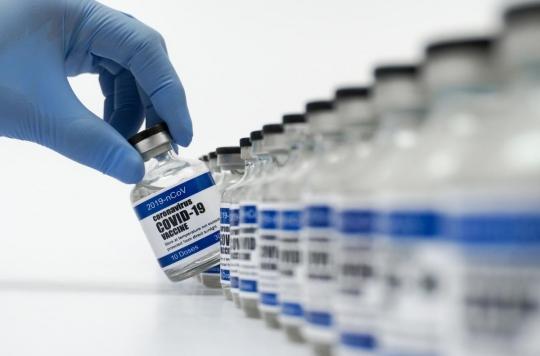While Pfizer and AstraZeneca have announced a delay in the delivery of vaccine doses, it is Moderna’s turn to indicate that they will deliver 150,000 fewer doses than expected in February. Added to this is a possible shortage of the specific syringes needed to extract the sixth dose from the Pfizer vials.

- A quarter of the doses planned by Moderna will not arrive in French freezers, i.e. 150,000 doses, and 60% of AstraZeneca doses will not be delivered.
- In February, 1.4 million second injections are planned in France and 1 million new injections.
- Crimped syringes, special syringes needed to retrieve a 6th dose from Pfizer vials, may soon be out of stock globally.
The vaccine delay continues to increase. This time, the fault is not to be put on the account of an organizational problem but of course a shortage of stocks, both doses and syringes. As a result, the Regional Health Agencies (ARS) of Île-de-France, Hauts-de-France and Bourgogne Franche-Comté have announced that people who wish to be vaccinated will have to wait longer than expected. This Friday, January 29, 100,000 fewer appointments are open to receive the first injection, with 400,000 places compared to the 500,000 announced at the start of the week by the Minister of Health.
In February, more second injections than first injections
The Moderna laboratory has announced that it plans to deliver fewer doses of vaccine than planned, relayed the Ministry of Health. In total, a quarter of the doses, or 150,000 out of the 600,000 initially planned, will not arrive in the freezers as planned. This is on top of the 200,000 doses of the Pfizer vaccine scheduled for last week which also did not arrive. And for the AstraZeneca vaccine, pending authorization by the European Medicines Agency which is due to take place this Friday, 60% of the doses ordered should not be delivered.
The announced delay in making appointments is therefore explained by these problems in importing vaccines but also by the need to secure the second dose. The government has indicated that it wants to maintain the 28-day delay between the injection of doses, as recommended by the laboratories that developed the vaccines. The month of February will therefore be the month of the second injection rather than the first. In Burgundy Franche-Comté, the ARS has already indicated that only second injections will take place in February. In Île-de-France, where the situation is less tense, there will be many primary injections “within 15 days maximum“, at indicated the ARS. In all, 1 million first injections are planned for February in the territory and 1.4 million second injections, said the Ministry of Health.
Crimped syringes, a rare product that has become essential
The other concern about this vaccination campaign is the looming shortage of syringes. The bottles distributed by Pfizer theoretically contain five doses, but caregivers quickly realized that a sixth dose could be extracted using specific syringes, called crimped syringes. A possibility confirmed in early January by the European and American drug agencies. Problem, the production of these syringes is “limited” said the American group Becton Dickinson, the largest syringe producer in the world, on January 25. The demand for these “niche products“what are crimped syringes is”traditionally minimal”, told AFP Troy Kirkpatrick, a spokesman for Becton Dickinson. “For this reason, these products have limited production capacity and it would take timeto increase it, he adds.
After extracting the five doses from the vial, there remains a small amount of vaccine fluid called dead volume. Using a crimped syringe makes it possible to retain less dead volume and, thanks to the fact that only a very small quantity of product is needed to vaccinate a person, to be able to recover a sixth dose which is particularly useful in the face of the shortage of vaccines .

.















